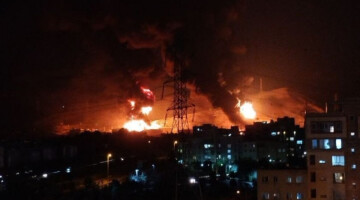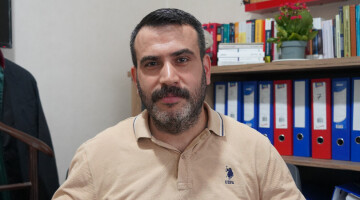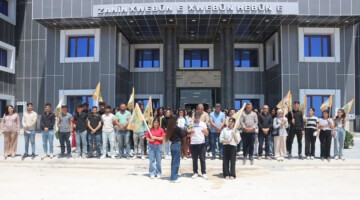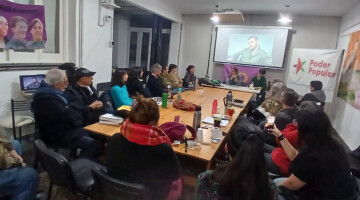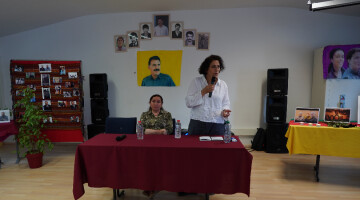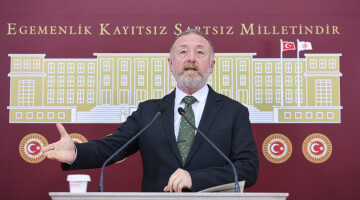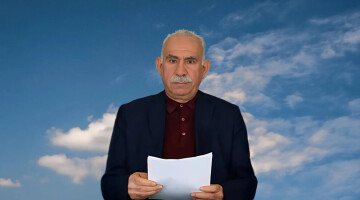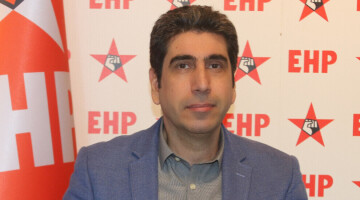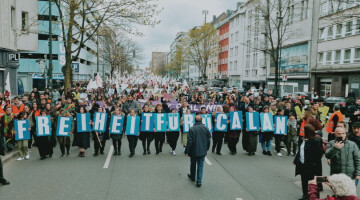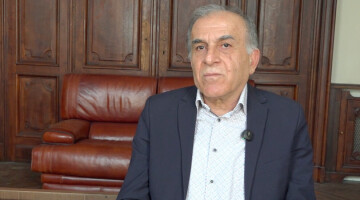The health area of the Martyr Rustem Cûdî Refugee Camp (Maxmur) tries to meet the health needs of the residents under all circumstances. Due to the approach of the doctors and hospital staff in Maxmur and their successful work, there are patients coming from outside the camp for treatment. Health workers meet the needs of society despite the embargo and obstacles.
Established under the auspices of the Maxmur Democratic People's Assembly Committee, Şehîd Hogir Hospital has been taking care of the health of Maxmur residents since 2018 with limited means. Yet, people from cities such as Baghdad, Kirkuk, Tikrit and other cities and villages around Maxmur come to Martyr Hogir Hospital for treatment. The hospital works over 19 hours a day. The hospital has 22 health workers. One of them is Dr. Mihemed Unver.
No business but service mentality
The Health Committee is affiliated to the Maxmur Democratic People's Assembly and is a part of the self-government, Dr. Mihemed Unver said, adding: "The Health Committee is a part of the autonomous administration here. Our hospital is a hospital that serves the public for over 19 hours a day. People from Maxmur, the surrounding villages, and cities such as Kirkuk, Tikrit and Baghdad come to us for health care. It has been 4 years since the hospital was put into service. However, as it is known, there is an embargo against Maxmur. Furthermore, we cannot refer our patients to different hospitals for treatment due to the closure of the roads. There have been many problems with getting medicines into the camp.
Although there are problems in many ways, thanks to the organization here, we can treat our patients and the people are satisfied with our work. Although we cannot treat some diseases due to the lack of specialist doctors, we are able to treat general and chronic diseases. Most of the time, even if the hospital is not working, if we have a patient, we come and provide service. We care about patients, that is, we care about people in terms of education, counselling and disease prevention. This makes more people come here. People from different cities have said to us that they cannot see the attention, treatment and service shown here.
The capitalist system treats health as a commercial tool. Often they even offer non-essential treatments to patients for extra money. Of course, people tend to come here because there is no such logic here. There is no business mentality here. There is service mentality. We do not give medicine to a patient unless he/she needs it. We try to help patients by educating, advising and understanding how they can protect themselves and the community from illness."
KDP and Iraqi government prevent access to medicine
Dr. Mihemed Üren, drew attention to the difficulties and troubles experienced during the embargo, and said: "We do not have the possibility to intervene in many situations. For example, if a caesarean is required, we can’t do it. We have to refer our cancer patients. It is a human duty to open the way for patients. But we have not seen such an attitude from the authorities. Many times our patients were insulted in state hospitals, our mothers lost their children and many times they did not let our cancer patients get out of the camp. A large number of people have chronic diseases. These patients should be given medicines constantly. We try to procure these medicines with our means. Even when we supply them, neither the KDP nor the Iraqi government allow these drugs to pass through the camp."
'We repair broken machines'
Although there are two doctors in Martyr Viyan Physiotherapy Hospital, which was established in 2003, the centre is able to provide health services to the people of Maxmur. One of the hospital's doctors, Dr. Tîrêj Demir pointed out that this hospital was established with limited facilities.
"We developed our health center with the help of our friends and donors," said Dr. Tîrêj Demîr, adding: "People from abroad and some of our patients who had completed their treatment brought the equipment we needed as gifts. Compared to previous years, we made progress and we expanded our place a little more. Before the embargo, the patient went to general practitioners in different cities, his report was prepared and he was treated accordingly. But after the embargo, our patients had a hard time going to other cities. There were also problems with the equipment needed for the hospital. Because we couldn't go and bring them to us, no one could bring them to us. We have many devices. When one breaks down, many people don't know how to fix it, so we have to do it ourselves."
A mother named Qumrî Yaman has been receiving treatment at Martyr Viyan Physiotherapy Hospital for 3 and a half months. Qumrî Yaman, who said that he saw a lot of benefits from the treatment, emphasized that although the number of patients is high and the opportunities are few, the healthcare professionals are very interested in the patients.



